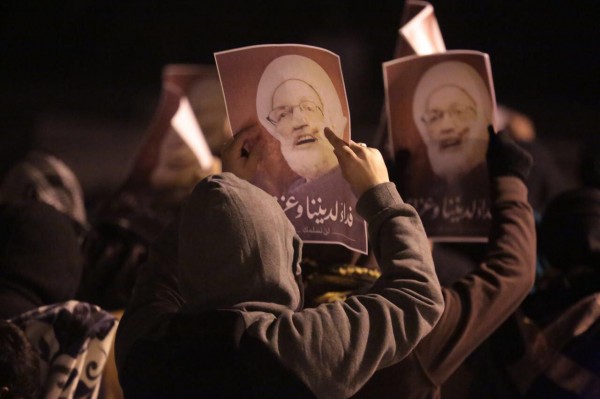Hawzah News Agency (Manama, Bahrain) - Shaikh Hussain al-Daihi said through his twitter account that targeting Ayatollah Qasim is triggered by his brave and firm stances, to demand legitimate rights for the oppressed Bahraini people.
The Al-Wefaq Deputy Secretary General also stressed that Ayatollah Qasim is a red line, and the repercussions of crossing that line would go beyond the country's borders.
Moreover, al-Daihi addressed the Bahraini regime saying, "Crossing the line with Ayatollah Qasim would lead the country into the unknown, and then it would be too late."
Shaikh al-Daihi further delivered a message to the world, saying, "Today you are required to reject the regime terrorism, violence, and extremism in persecuting the indigenous people, through a clear condemnation of the trials and demands to stop them."
In addition, al-Wefaq Deputy SG said that the issue of revoking Shaikh Isa Qasim's citizenship was a clear intention, cleared through investigations that sought any justification for the revocation verdict.
He clarified that through the testimonies of the head of religious affairs at the Ministry of Justice, at the Public Prosecution on July 13, 2016, it was clear that the Khums tax, and the Shiite existence were the target.
"The Khums ritual is one of the most important pillars of the Ahlul Bayt (prophet's household) followers, and it cannot be, under any price, subjected to the whim of politics and its absurdity, and it is not negotiable," he went on to say.
Commenting on the Public Prosecution plea in the trial of Shaikh Isa Qasim, al-Daihi said that the prosecution did not have enough from exposing the regime's intention to criminalize the Khums tax, but rather was full of hatred and malice and showed its lack of independence and impartiality.

